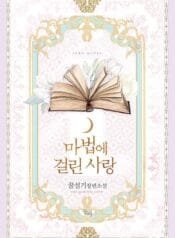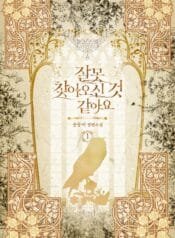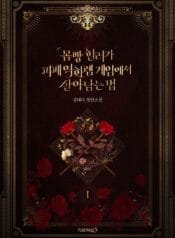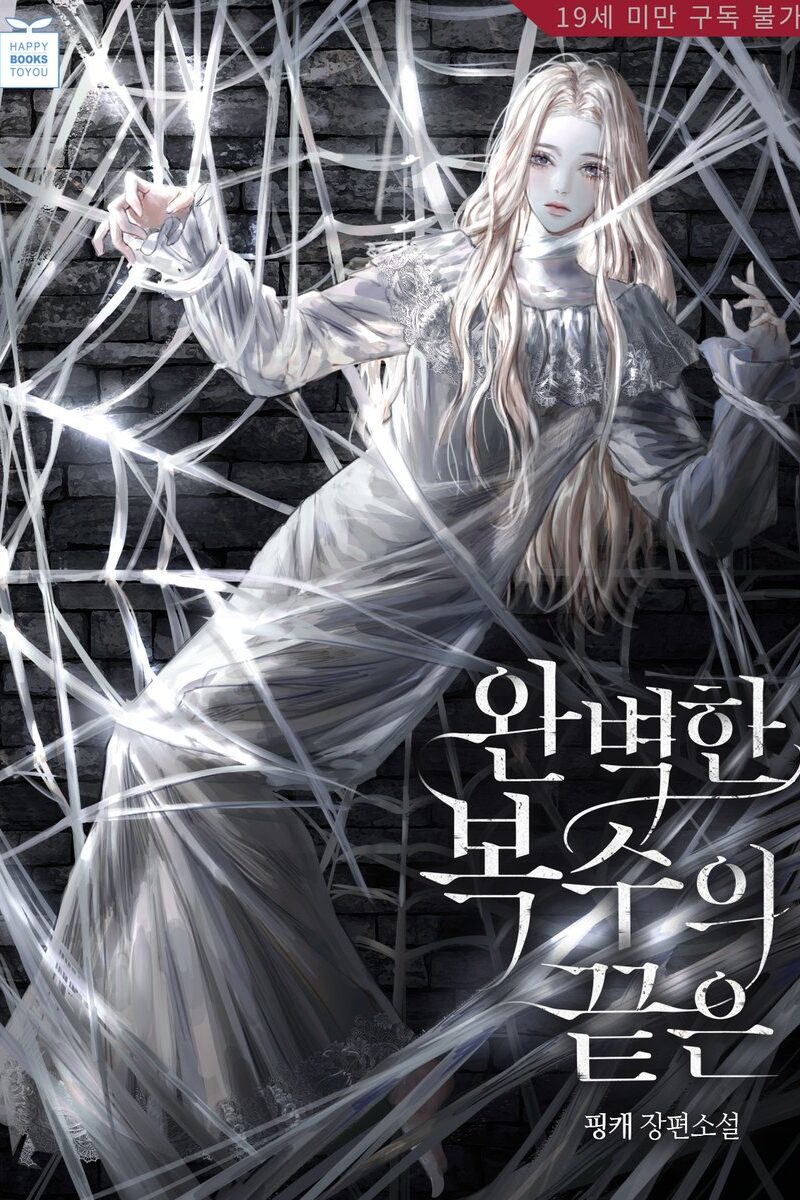Chapter 3
‘What’s this? You’re not a statue, are you?’
Her husband uttered those words after caressing Lisbeth’s body here and there. All the women he had been with before would giggle and melt at his touch. But no one had ever told Lisbeth what would happen after marriage. Raised as a noble lady, Lisbeth had never learned anything about how to spend the night with a man.
Her husband laughed at Lisbeth, who froze, it being her first time feeling a man’s touch.
‘Well, I suppose it can’t be helped since you’re so precious.’
Her husband poked Lisbeth’s cheek with his finger as she lay pale and rigid on the bed, then left the room.
The wedding night passed just like that, with nothing happening. Lisbeth was embarrassed, but she didn’t have the courage to hold onto him. She simply thought that someday, her husband would spend the night with her.
The problem was that this hope turned out to be nothing but a dream.
Her husband always stayed out. Every day, Lisbeth waited by the window or the door like a house dog, just waiting for him to return. Sometimes he came home sober, sometimes drunk. But always, he reeked of strong women’s perfume. Lisbeth herself never wore perfume.
After a year had passed like that, the maids who had grown closer to Lisbeth began to pity the new Madam. They all knew about their master’s promiscuity, but still, they couldn’t help but feel sympathy seeing the young Madam guarding an empty house like a woman who had lost her husband. They quietly taught Lisbeth things like ‘how to arouse a man’. Blushing, Lisbeth tried to follow their advice, but it was all in vain. Her husband never came to her in the first place.
After two years, she grew tired. In truth, it wasn’t much of a problem that her husband didn’t come to her. There was no way she could develop affection for a husband who spent all his time with other women.
She was just glad he didn’t ignore her completely at home, didn’t gamble or become violent. Sometimes she even thought, if he brought back a child from one of those women, maybe she could just adopt it.
But as their third year of marriage began, something happened.
Her husband suddenly collapsed while out and was carried home. The household was thrown into chaos, as expected. The doctor, who was called in a hurry, made his diagnosis.
‘……Pardon? What do you mean?’
‘I’m afraid your husband has, at most, about half a year left to live.’
‘Isn’t that a bit too sudden?’
‘Did you not know?’
It turned out her husband wasn’t just chasing after women. Lisbeth hadn’t known, but he had apparently been using drugs as well. Lisbeth, who knew nothing of such things, was shocked. Her husband, a drug addict! Not only did he go from woman to woman, but he was also sick from addiction! Without realizing it, Lisbeth stepped away from the bed where her unconscious husband lay.
When her husband regained consciousness some days later and heard about his condition, he just snickered.
‘Looks like I’ll just end up leaving everything for someone else’s benefit.’
It was only later that Lisbeth understood what he meant.
Despite his life of women and drugs, he had apparently run his business decently. The wealth he accumulated would be inherited by Lisbeth after his death—hence, ‘for someone else’s benefit’.
Her husband’s father had died early, and his mother was bedridden, so Lisbeth, though she lost a husband she never loved, inherited a huge fortune.
But her husband’s words about being ‘someone else’ stuck in her heart and tormented her. From the beginning until now, even while she nursed him on his sickbed, her husband never accepted Lisbeth as his wife—not in his heart, though legally she was.
In the end, one night, Lisbeth tearfully asked,
‘Why did you marry me at all? If you were just going to neglect me and treat me like a stranger, why did you marry me?’
‘My mother said—cough, since I never listened to her, I thought I’d do as she wished, just this once—cough, cough.’
With that answer, Lisbeth gave up all hope. Truly, she was nothing more than a tool to this man.
She was almost glad they had never been together, that they had no child. She didn’t know what kind of illness she might have caught if they had, and if they’d had a child, she doubted she could have loved it.
Her husband died a little earlier than the doctor had predicted. It was early autumn, just as the cold wind began to blow.
Lisbeth did not cry at the funeral. It was a quiet affair, with few people attending. She sorted out her husband’s business. It was too much alone, so she hired people to help.
She tried to keep the news from reaching her own family. Her family, always asking for money, was nearly bankrupt from their extravagance. She had no desire to help the parents who had sold her off to such a family.
Time passed in a blur, and after about a year, Lisbeth became a wealthy widow. In that time, she cut ties completely with her family and settled all her husband’s business. She reduced the number of male workers in the house as much as possible and hired female knights for her security.
It was early spring, after everything had finally been settled.
Someone knocked softly on Lisbeth’s door as she sat absentmindedly. Even though she didn’t answer, the door opened. It was Becky, Lisbeth’s favorite maid, carrying a silver tray with envelopes on it.
“Madam, today’s letters have arrived.”
“Give them here.”
Most were of little consequence. There were two invitations from other Madames she was on decent terms with, and one letter from the Royal Family. Lisbeth opened the royal letter first, already guessing what it would be about.
“……Therefore, we invite the Viscountess of Ellor to attend this year’s Grand Festival Banquet. Unless there are unavoidable circumstances, all those listed in the noble registry must attend……”
“Madame, you’ll go, right?”
As Lisbeth mumbled through the letter, Becky asked excitedly beside her. Lisbeth folded the letter and nodded.
“I suppose I must. Last year, I was excused because my husband was ill. I don’t really want to go, but I have no excuse now……”
“Then you should have a new dress made, yes?”
“You seem more excited than I am.”
“This time, please, get something pretty and colorful, yes? Your wardrobe has been full of crow-colored dresses for over a year now.”
At Becky’s words, Lisbeth giggled. She could guess why Becky was whining. Seeing nothing but dresses in navy, gray, black, or at best dove-gray, the maids must have felt gloomy too.







